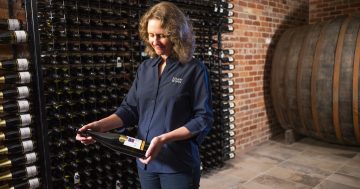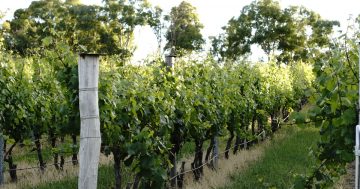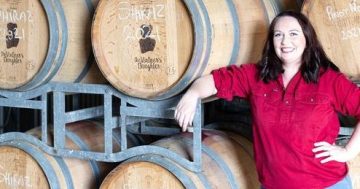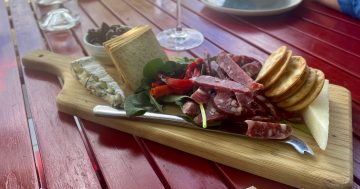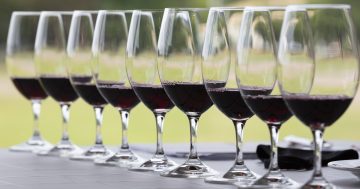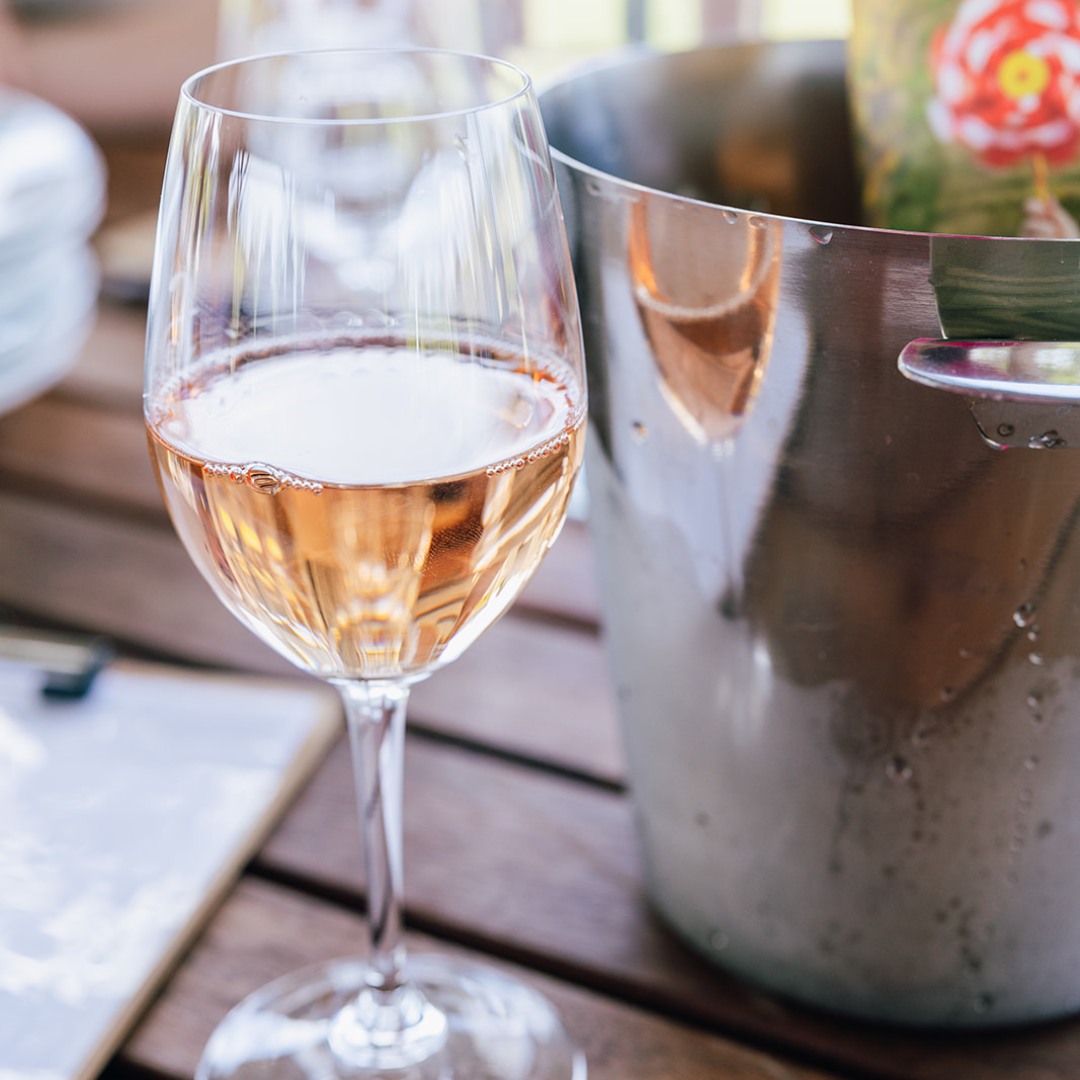
While many of us used to reach for a glass of red or white, rosé is quickly becoming a beloved alternative – especially during warmer weather. Photo: Four Winds Vineyard/Facebook.
Not that long ago the idea of sitting with a crisp cold glass of wine would see a sauvignon blanc in the hands of many Canberrans. But a light pink hue is taking over.
“Rosé is the kind of wine people sit out on a warm summer evening and enjoy as an apéritif or even with the meal,” Four Winds Vineyard owner Sarah Collingwood says.
“We don’t want it to be too sweet when we make it, but that little bit of residual sugar is just enough to make it really fruity and delicious.”
Four Winds Vineyard is one of many vineyards from across the Canberra region that has added the wine variety to its offering.
“We’ve been making a rosé for quite a while – as have most of our neighbours in the region – so rosé has really been a staple for us since we first started making wine,” she says.
“Making a rosé seemed like a real no-brainer.
“This is a style of wine that really appeals to the warmer Australian climate, and also the food that we’re eating because a lot of it is quite light.”
The differences between rosé wines and other varieties go to the earliest stage of the winemaking process – and no, it’s not made from pink grapes.
The grapes are picked that little bit earlier than for a dry red wine, before they are put through a press to separate the skins and the juice.
“It is made out of red grapes, but processed more like a white wine,” Ms Collingwood says.
“We don’t let the juice sit on the skins for very long, because that’s when the wine develops lots of colour.
“By separating the skins and the juice, we get that lovely blushing pink colour, and we also leave a little bit of residual sugar so we don’t come in to totally dry.
“It’s a little bit sweet, fruity and light and pink.”

Winemaker Sarah Collingwood says rosé wines are quickly growing in popularity – including those made in Capital Country. Photo: Four Winds Vineyard.
For the winemakers in south-east NSW and the ACT, Ms Collingwood says there is a bit of creativity as they approach the pink wine.
“Rosé has really been a staple for us since we first started making wine,” she says.
“We’ve looked at ways we can expand our rosé repertoire, but it’s certainly been one that we’ve had in the portfolio for a while.
“We’ve started making a sparking rosé in the last few years and that has been really popular.”
Ms Collingwood says every rosé from across the Canberra district has similarities, though each winemaker will put his or her own spin on the end result.
“Being a cool climate does mean that we retain some really nice acidity in the grapes, and that is seen in the wine as something that’s really refreshing,” she says.
“It makes it a really refreshing and appealing wine to drink.”
The growing popularity of the pink varietal is giving the Canberra wine region some added hope after a rough few years.
January 2022 saw wind and hailstones from a freak hail storm damage vineyards in the Murrumbateman region, while the 2020 vintage was affected by smoke amid the bushfires.
“We’re definitely seeing the effects of recent extreme weather events on the crop,” Ms Collingwood says.
“But realistically that is part of farming, you make sure to be as prepared as you can and we’re making sure we’re managing the vineyard as best as we can.”














